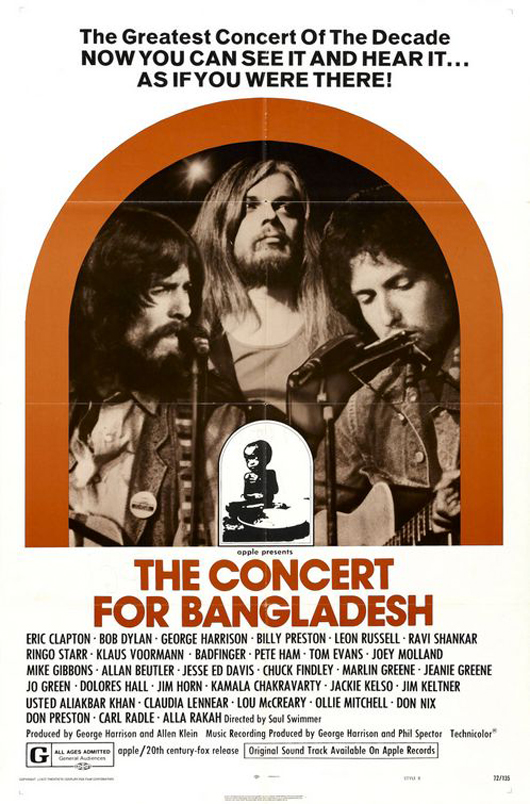 When I was at BB King’s Blues Club in NYC this past week, I noticed that Dick Gregory was scheduled to do two shows with Paul Mooney on November 2. Yes, he was still active up to the end of his life. The club’s description is a good place to start:
When I was at BB King’s Blues Club in NYC this past week, I noticed that Dick Gregory was scheduled to do two shows with Paul Mooney on November 2. Yes, he was still active up to the end of his life. The club’s description is a good place to start:
“An activist, philosopher, anti-drug crusader, comedian, author, actor, recording artist, and nutritionist, Dick Gregory was on the front line in the ’60s during the Civil Rights era. Today he continues to be a ‘drum major for justice and equality.’
“Born in 1932 in St. Louis, MO, his social satire has drastically changed the way white Americans perceive African Americans. After beginning to perform comedy in the mid-’50s while serving in the army, Gregory first entered the national comedy scene in 1961, when Chicago’s Playboy Club (as a direct request from publisher Hugh Hefner) booked him as a replacement for white comedian, ‘Professor’ Irwin Corey. His tenure as a replacement for Corey was so successful – at one performance he won over an audience that included Southern white convention goers – that the Playboy Club offered him a contract extension from several weeks to three years.”
Dustbury shares the fried chicken joke.
“By 1962 Gregory had become a nationally known headline performer, selling out nightclubs, making numerous national television appearances, and recording popular comedy albums.”
Though Mark Evanier knew Gregory from his LPs, I was more familiar with him from his books, especially From the Back of the Bus, my father’s paperback copy, which I devoured.
Early on, he became a civil rights activist, working with Malcolm and Martin, among others.
I have mentioned on these pages, most recently on 20160603, that Dick Gregory ran for President in 1968, and that my parents, especially my father, were inclined to vote for this black man for President. I couldn’t yet vote, but I lobbied strongly for Hubert Humphrey, the Democratic candidate, stating that Richard Nixon, the Republican, was too dangerous. What they did in the privacy of the voting booth, I’ll never know, but I STILL have the campaign button.
“Although Gregory’s steadfast commitment has limited his opportunities to perform, he’s still found ways to share his powerful and often comedic message with audiences across the country. In 1996, he took the stage stage with his critically acclaimed one-man show, Dick Gregory Live! The reviews of the show compared him to the greatest stand-ups in the history of Broadway…
“Although Gregory announced in 2001 that he had been diagnosed with lymphoma, he was able to battle the cancer into remission with a regimen of diet, vitamins, and exercise… The new millennium has found Gregory continuing to write, perform, and shape public opinion. ‘I’ve lived long enough to need two autobiographies, which is fine with me,’ he laughs. ‘I’m looking forward to writing the third and fourth volumes as well.”
Dick Gregory has died at the age of 84, and the world is diminished by that fact.
For ABC Wednesday




 Science fiction is not particularly my favorite movie genre. I don’t dismiss it, but I’m not necessarily motivated to see films either.
Science fiction is not particularly my favorite movie genre. I don’t dismiss it, but I’m not necessarily motivated to see films either.  While sitting in the middle school parking lot, waiting for the Daughter to come home from a three-day trip to Washington, DC, we heard on the radio
While sitting in the middle school parking lot, waiting for the Daughter to come home from a three-day trip to Washington, DC, we heard on the radio